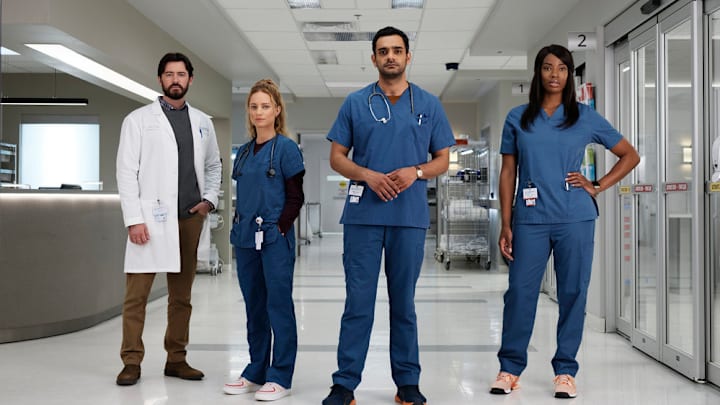It’s the beginning of the end of Transplant, and you’ll want to check out the first two episodes of the season as soon as possible. Now the question is whether you can watch it with the kids around or not. The show will air starting at 8 p.m. ET/PT, so that suggests that it should be somewhat suitable, right?
Transplant follows a Syrian refugee, who isn’t allowed to work as a doctor in Canada despite being a doctor in his own country. He can’t go back home, though, as it’s a warzone, and so he makes ends meet until he can figure out a way into medicine. That happens when there’s an explosion at the kebab place he works at and he has to save the Chief of Surgery from the hospital onsite.
We follow him through his four years of residency, where he faces issues with his medical documents being back home and his struggles between the Canadian and Syrian healthcare systems. At the same time, we get to know the residents he works with, while hoping that the relationship between him and his coworker Mags will finally happen.

Transplant age rating: Explaining the TV-14 age rating
The official age rating for Transplant is TV-14, which suggests that it’s okay for teenagers. However, it’s worth breaking down the reason for the age rating to make sure that it’s suitable for you. After all, there are some flashbacks that can bring some heavy topics to discuss.
Sex & nudity: As a broadcast show, it shouldn’t be surprising to hear that there is minimal sex and nudity. In fact, nothing is graphic, with just a few scenes where the sex is implied but never clearly shown on the screen. This is the standard way of handling this topic for networks like NBC, and the same applies on Canadian networks.
Violence & gore: This can be on the heavy side, especially with it being a medical drama. We see a lot of patients come into the hospital with various issues and injuries, which some of them can be shown in full. If you’ve watched the likes of Greys’s Anatomy and The Resident, you’ll get an idea of what to expect.
In the first episode alone, there is an explosion that leads to Dr. Bishop being injured under some rubble, and Bashir has to perform brain surgery with a drill. It’s rudimentary surgery in the middle of what is similar to a battlefield, and we get to see a lot more of this throughout the series as we get flashbacks of Bashir’s time trying to escape the war in Syria.
Language: The language used is mild, but there are some harsher words than we would usually see on broadcast TV. The B-words can sometimes be dropped, the S-word is sometimes used, but it's used sparingly.
Alcohol & drugs: As this is set in a hospital, there are times when patients come in drunk or high on drugs, and they are also prescribed medicine to help with their ailments. Outside of the hospital setting, the use of alcohol and drugs is mild, although there is a focus on one character overusing medication to help with pain and other symptoms from a previous injury.
Overall verdict: Who is Transplant appropriate for?
Teenagers won’t be too frightened by this series, but it is important to have conversations with them about some of the topics shown. This can get heavy with the flashbacks, because there is a raw look at the war in Syria and other parts of the Middle East. In the third season, Bash heads to a refugee camp, giving more of a realistic look at what it’s like to do medicine there.
It’s a wonderful series, though, and it’s something that is worth watching. There are plenty of reports and a lot of misinformation about refugees, so this show can help to demystify and destigmatize some of it.
Transplant airs on Thursdays at 8/7c on NBC.
